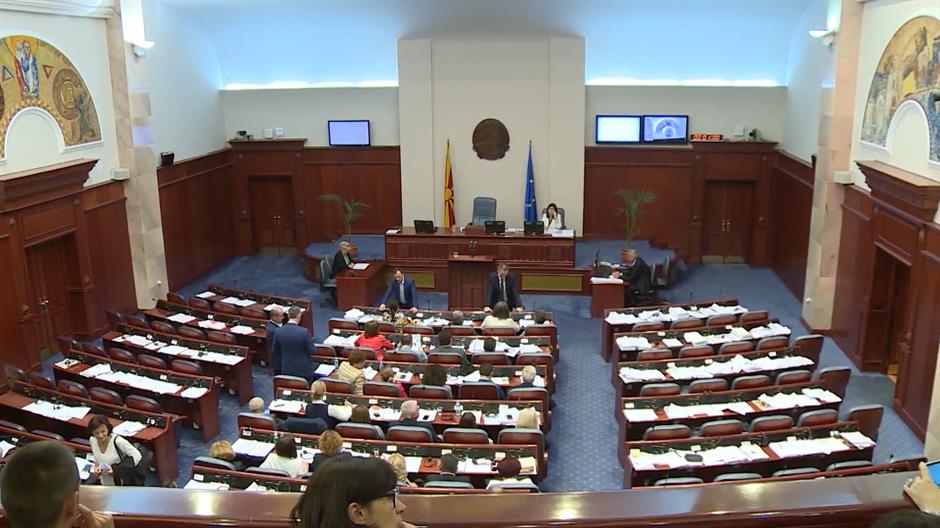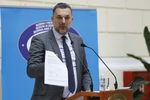
The Central Committee of the Macedonian nationalist opposition VMRO-DPMNE party punished its members who secured the majority to the ruling coalition in the parliament by supporting Skopje – Athens deal on the country’s new name, the Beta news agency reported on Tuesday.
Oglas
A vice-president of the party, Mitko Jancev, was dismissed from the post, while two other high-ranking officials were expelled from the organisation.
Another vice-president Aleksandar Nikolski explained the move as the consequence of “their strong cooperation with (Macedonian Prime Minister Zoran) Zaev and for organising “a group for pressure, blackmail, threats and bribe of the deputies from the VMRO-DPMNE and the coalition ‘For Better Macedonia’ to help reaching the two-thirds majority for the constitutional changes.”
Nikolski told reporters that the three officials were punished “because of their actions against the VMRO-DPMNE interest, but also against the interest of Macedonia.”
Oglas
He asked the state prosecutor’s office to launch a probe into allegations about the threats, blackmail and bribe of the deputies, while the Central Committee demanded from the members of the coalition ‘For Better Macedonia’ who voted in favour of the new name deal “to immediately resign because they work against the citizens’ will.”
The Prime ministers of Macedonia and Greece, Zaev and Alexis Tsipras agreed in June to end the 27-year-old dispute over the name of the former Yugoslav republic and change it to the Republic of North Macedonia.
The agreement opened Skopje the doors to both NATO membership and the European Union accession negotiations. The EU leaders praised Macedonia and Greece for making a deal.
However, in both countries, right-wing nationalists had staged the street protest against the agreement.
Oglas
Zaev’s coalition was nine votes short of the two-thirds majority in the parliament but managed to win the support of some opposition deputies and secured 80 ‘yes’ votes needed for the deal to be adopted.
The parliament decision was necessary after the last month's referendum failed to attract enough voters mostly due to the VMRO-DPMNE call for a boycott.
The Macedonian Foreign Ministry rejected claims from Moscow that it used blackmail, threats and bribes to secure the votes needed to change the country’s constitution so that the agreement resolving the name dispute with Greece could be implemented. The ministry categorically rejected claims made by the Russian Foreign Ministry Information Department on October 22 about the vote on the change of the constitution, a press release said, adding that the claims are completely baseless and untrue and were made with the clear intention of compromising the historic political process.
Kakvo je tvoje mišljenje o ovome?
Učestvuj u diskusiji ili pročitaj komentare
Oglas
Kakvo je tvoje mišljenje o ovome?
Učestvuj u diskusiji ili pročitaj komentare
Oglas
NAJČITANIJE
Oglas
Oglas
Najnovije
Oglas
Oglas





 Srbija
Srbija
 Hrvatska
Hrvatska
 Slovenija
Slovenija



























































